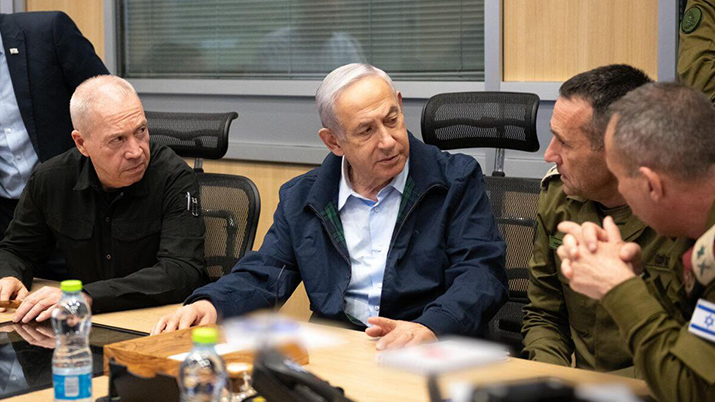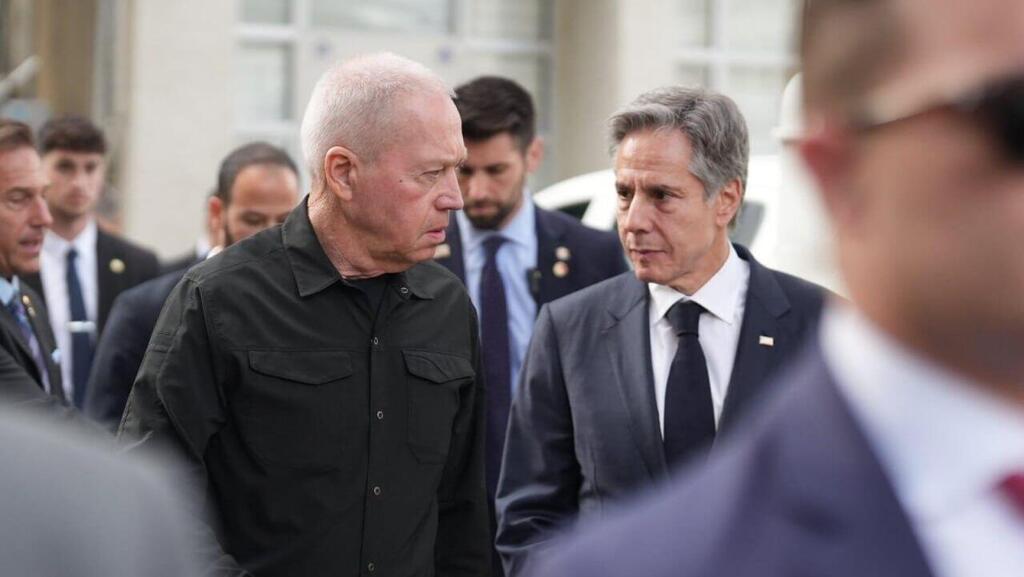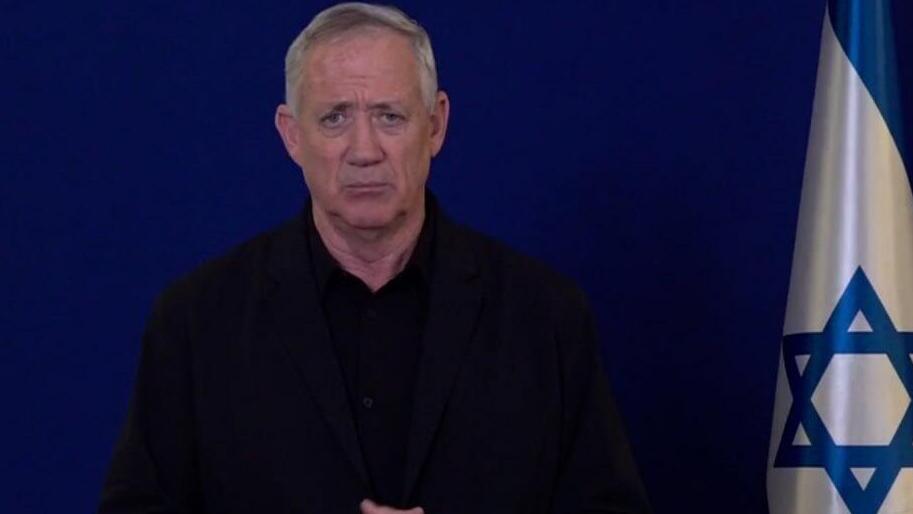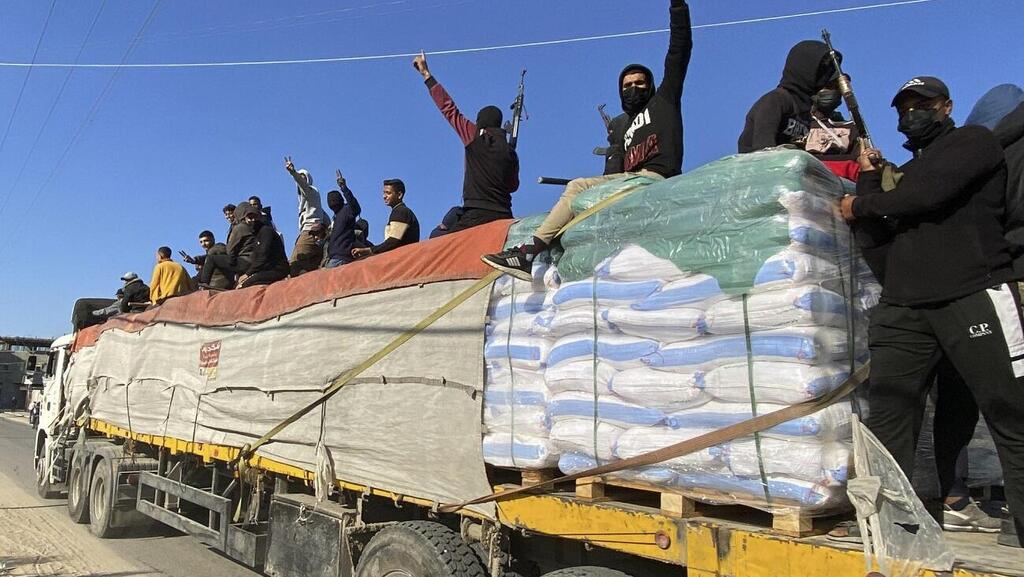Israel's war cabinet is set to convene on Wednesday evening to discuss negotiations for a deal to release hostages held by Hamas in Gaza since October 7. The cabinet would also discuss the future of Gaza after the war.
Read more:
According to a report in the Qatari Al-Araby al-jadeed newspaper, the Egyptian lead efforts have continued from the moment they were suspended after the assassination of Senior Hamas member Saleh al-Arouri in Beirut last week. The paper also said that Israel is insisting that the freeing of hostages include a temporary cease-fire and not a permanent one.
4 View gallery


Defense Minister Yoav Gallant, Prime Minister Benjamin Netanyahu and Chief of Staff Herzi Halevi during a meeting of the war cabinet
(Photo: GPO)
But Israeli leaders understand that the ball is in the Hamas court. Moreover, the messages delivered from the Hamas leaders outside the Strip may not be agreed upon by Yahya Sinwar. One suggestion discussed was that Sinwar and his leadership leave the Strip, an unlikely scenario.
Hamas has said it would not agree to any post-war scenario in which the group is not a part of the governing authority.
Sky News in Arabic reported that Hamas had previously rejected similar Qatari offers and that a release of Israeli captives must include the freeing of Palestinians serving time in Israeli jails. The head of the Hamas political bureau Ismail Haniyeh said on Tuesday that Israel would never get the hostages back unless all Palestinian prisoners are released, a position likely shared by Sinwar.
The Americans have been putting considerable pressure on Qatar to supply results, in a direct channel to the Qatari leadership that incudes CIA director William Burnes and U.S. President Joe Biden dispatched is special envoy Brett McGurk to Qatar after he played a major role in the earlier hostage release agreement.
An Israeli delegation is due to travel to Cairo in the coming days to continue negotiations there. During his visit to Israel on Tuesday, U.S. Secretary of State Antony Blinken said all efforts were being made to reach a deal. The source of his apparent optimism was unclear but it may stem from the mere fact that the Israeli leaders are even discussing an agreement. But Blinken understands the difficulties facing the government and the Israeli officials seem grateful for Qatar's efforts.
Minister Benny Gantz, leader of the National Unity Party, who joined the war cabinet, said in a press conference that the most pressing matter is returning the hostages held captive by Hamas, even ahead of the fighting. "If there is any of the hostages that are watching us now, it is important that you know that we are doing everything we can to bring you home to your loved ones, who have not stopped fighting for you. There is no channel that is being ignored, and no road that is not taken to make that happen."
While Israel and the U.S. agree on the matter of hostages, the question of the day after the war is more complex as are the concerns over how the war is being fought, the number of civilian casualties and the humanitarian crisis in the Strip. Israeli officials say there is a campaign to misinform on starvation in Gaza. "Yes, things there are tough but there is no starvation. Much of the difficulty in getting food to the civilian population is of the UNs making," an official said.
4 View gallery


Defense Minister Yoav Gallant with U.S. Secretary of State Antony Blinken
(Photo: Elad Malka)
Israel even rejected a German suggestion to allow more aid into the Strip through the Erez Crossing, insisting that was not necessary and that there was no impediment on the Israeli side to 400 trucks of aid entering the Strip daily, but the UN was unable to facilitate such an amount.
The American administration was trying to reach a stage where Gazan's who had evacuated from their homes in the northern part of Gaza would be able to return, but understand that is not yet possible. Israel has consented to a UN delegation traveling to the area to study the situation in northern Gaza.



